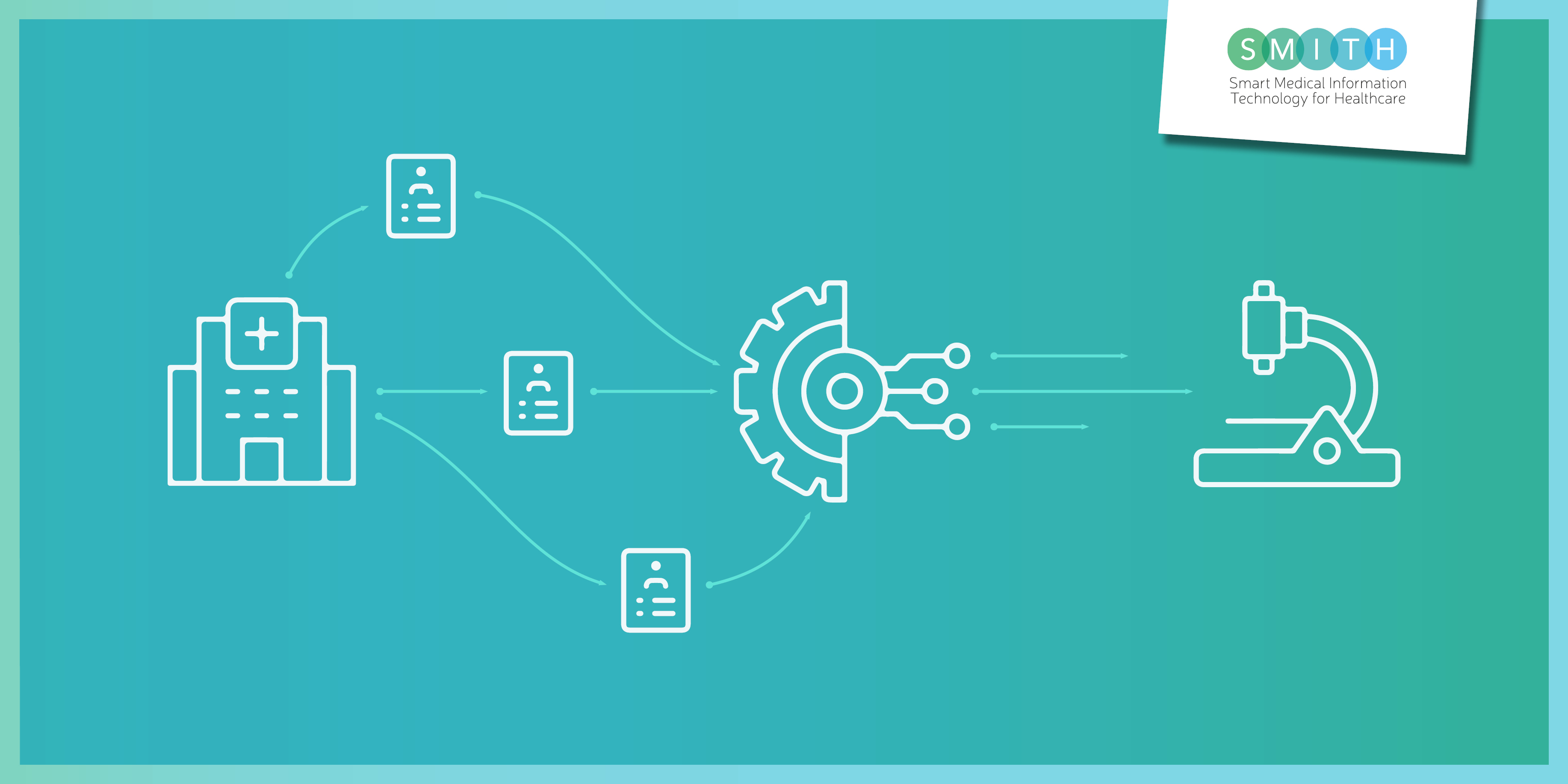
Development and networking of the Data Integration Centers in SMITH – A review 2022
The Data Integration Centers established in the SMITH Consortium are the new junctions of patient care and biomedical research. Data Integration Centers create the technical and organizational conditions to centrally merge medical data, harmonize formats and make them available for further use in cross-site research and analysis projects. Data protection and data security have the highest priority. At the end of this year and the development and networking phase, the question therefore arises: How have the Data Integration Centers developed over the past five years, what challenges have been overcome, and what will be the future of the Data Integration Centers in the next funding phase?
In the development and networking phase of the Medical Informatics Initiative (MII), Data Integration Centers were established at seven university medical sites in the SMITH Consortium. In addition to extensive organizational tasks, the main task was to design and implement technical systems based on a reference architecture from scratch at each site. In the process, the Data Integration Center sites encountered various challenges: On the one hand, the major differences between the hospitals’ primary documentation systems made it difficult to process data uniformly. On the other hand, the use of existing documentation also proved difficult, as this was not originally recorded for secondary use. The simultaneous rollout of Broad Consent at the sites took up a great deal of personnel and time resources.
However, these hurdles have been successfully overcome over the past five years. At the end of the current funding phase, seven SMITH sites have a Data Integration Center in productive operation. Three more sites will establish a Data Integration Center as network partners in the upcoming funding phase. In total, by the end of 2022, the Data Integration Center sites have succeeded in obtaining permission (Broad Consent) from 15,481 patients to use their data. For the interoperable retrievability and usability of this data, transformation processes have been established at the Data Intagration Centers that generate the core data set of the Medical Informatics Initiative and make it available in a FHIR server. Depending on the framework conditions and competencies, the sites use different software tools, partly supported by the SMITH industry partners – including the data platform, transfer procedures and the terminology server.
SMITH was able to practically implement the operation of the Data Integration Center on various levels: organizational and technical procedures as well as their documentation were examined in the external audit of the MII in 2021. In the first Projectathons, SMITH Data Integration Centers initially tested data exchange within the MII. Eventually, the last two Projectathons succeeded in implementing full-scale Data Use Projects. In addition, Data Integration Centers at many sites are involved in data evaluations for clinicians and research projects conducted on site.
Starting in 2021, SMITH contributed to the design of the common infrastructure linking all MII Data Integration Centers: The Central German Research Data Portal for Health (FDPG). It offers interested researchers the opportunity to find out about data use projects, make their own feasibility inquiries, and submit their own use requests. In the course of this, the concept of the initially planned SMITH Service Platform was abandoned and the insights and methods gained here were incorporated into the concept of the MII data management offices. As a result, the SMITH Data Integration Centers are connected to the Health Research Data Portal and the sites’ data are accessible for networked biomedical research.
One goal of the upcoming consolidation and extension phase (2023 – 2026) is to further deepen the inter-consortium collaboration of the SMITH Data Integration Centers. In cooperation with the University Medicine Network (NUM), in which the SMITH Data Integration Centers have already successfully contributed to research on the COVID19 pandemic in the CODEX project, among others, the established structure of the MII will be further refined and professionalized. Through the ABIDE_MI project, Data Integration Centers and local biobanks will be interconnected. At the same time, SMITH partners are participating in various other projects. These deal, among other things, with the development of software as a medical device, method platforms for automated processing of medical free texts, or cross-consortium medical use cases on topics such as infectiology and drug therapy safety.
New challenges await the Data Integration Centers after their successful establishment, and the SMITH Consortium is ready to address them together in the Medical Informatics Initiative (MII) and the University Medicine Network (NUM).

